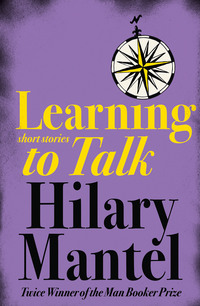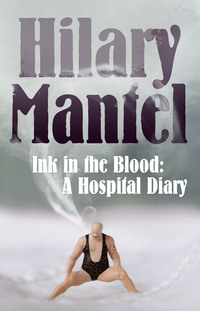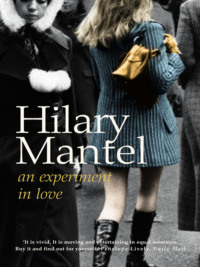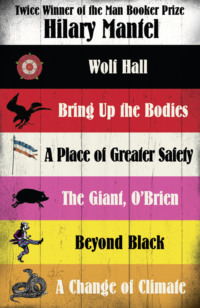
Полная версия
Eight Months on Ghazzah Street
‘Perhaps we shouldn’t have come. If we are going to dislike all these things so much.’
‘It’s hard to take umbrage on a salary like yours.’
‘I expect we’ll survive it,’ Andrew said. ‘We’ll have leave in the summer. We can start planning it.’ He broke off. ‘Oh, look at that cockroach. There were five in the shower when I got up this morning. There were three in there just now. Where the hell do they come from? Where’s the spray?’
Swearing to himself, he padded out in his bare feet. Frances slid off the bed, rubbed her eyes, straightened the cover. She looked at Andrew’s discarded shirt on the floor, picked it up, and dropped it in the basket.
Ten o’clock. Like someone testing the water, Frances stepped out through the glass sliding doors, and stood on the paving stones in the shadow of the wall. I’m going to come to grips with this place, she thought. The heat of the sun struck her lifted face. Satisfied, she turned, stepped inside again, and drew the door behind her.
Five minutes later she went out of the front door. She wore her baggiest smock, flat sandals. She held up a bunch of keys, peered at them in the light of the hallway. First the door of Flat I. Then the main door. Then the iron gate. Perhaps I shall never get back in, she thought.
She was alone, out in the street. The stray cats fled away. A dark-faced boy in a car blew his horn at her. He cruised along the street. He put down his window. ‘Madam, I love you,’ he called. ‘I want to fuck you.’
She walked on to the corner of the block. Every few yards it was necessary to step down from the eighteen-inch kerb and into the gutter; the municipality had planted saplings, etiolated and ill-doing plants inside concrete rectangles, and it did not seem to have occurred to anyone that the saplings would block the pavements, and that pavements are for walking on. But clearly they are not for walking on, she thought. Men drive cars; women stay at home. Pavements are a buffer zone, to prevent the cars from running into the buildings.
By the time she reached the street corner she realized that it was far hotter than she had thought. The air felt wet, full of the clinging unsavoury fragrance of the sea. A trickle of sweat ran between her shoulder blades and down the backs of her legs. On her right stood a row of half-built shops, wires snaking from the brickwork. She stuck close to the wall; she had reached a main road. The dark fronds of shrubs spiked the air over the central reservation. A hot-dog van trundled past. A skip full of builder’s rubble forced her into the road again. From out of the dazzling sunlight, moving slowly towards her, came two fellow pedestrians, two women in long zigzagged gowns, in African headcloths of vivid stripes; their blue-black flesh rolled towards her, and she saw their large spread feet, pale grey with dust, planted on the hot concrete. Smiling dazedly, hardly seeming to know that she was there, they parted to let her slip between them. Yasmin had told her of the West African hajjis, the pilgrims on their way to Mecca, who dropped their garments on to the shingle of the Corniche and ran naked into the waves. These women had stayed on, washed up in the city. They left behind them the scent of their passage; onions, the hot pepper smell of their skin and hair.
Frances turned back into the smaller streets, between apartment blocks, to cut back on herself. Over to her right, cranes and derricks split the sky. On her left a wall had been built, enclosing nothing; a gate gave access to nothing but a tract of muddy churned-up ground and some stagnant pools.
She stopped for a moment, unsure of where she was. Her sense of direction had almost never failed her. She steadied herself, her hand against a burning wall. Her own block of flats was ahead of her, seeming to shimmer a little in the heat; in the two first-floor apartments the wooden blinds were drawn down securely over the balcony windows, and the building had a desolate, uninhabited air.
A man in a Mercedes truck slowed to a crawl beside her. ‘I give you lift, madam?’ She ignored him. Quickened her step. ‘Tell me where you want to go, madam. Just jump right in.’ He leaned across, as if to open the near door. Frances turned and stared into his face; her own face bony, white, suffused with a narrow European rage. The man laughed. He waved a hand, dismissively, as if he were knocking off a fly, and drove away.
Inside the hallway, Yasmin stood by her front door. Her face was agitated. ‘Frances, Frances, Shams was looking out and saw you just now in the street. Where have you been?’
‘I went for a walk.’
‘Come in, come in.’ With a flapping motion of her arm, Yasmin drew her inside. Her bracelets clanked together. ‘Sit, please sit. I will fetch you a cold drink.’
Frances perched on the edge of one of the heavy brocade armchairs. She felt dirty. She took a tissue from a box and wiped her hands. Yasmin hurried back with a little silver tray: a glass of Pepsi-Cola, a dish of ice, a saucer of sliced limes. She produced a spindle-legged table from its nest, placed the tray at Frances’s elbow. She hovered above her, speaking not out of curiosity, but in proprietorial wrath. ‘What made you do it?’
‘I just wanted to see how I would get on.’
‘But it is so hot, Frances. And men will shout at you from cars.’
‘Yes. I know that now.’
‘I could have told you and saved you the trouble. Frances, could not your husband’s company give you a driver?’
‘I think Mrs Parsons, the boss’s wife, has got a monopoly on them.’
‘I can get drivers. Raji’s office will send a car, if I call up, but I don’t like to ask too often.’ She pressed her hands together. ‘Just tell me where you want to go. I will arrange it. But don’t be walking the streets.’
‘It was only round the block,’ Frances murmured.
‘We can go to Al Mokhtar if you want anything for sewing. We can go to Happy Family Bakery. We can make an evening tour to the souk, Raji would be so happy. Just tell me where.’
‘The trouble is, I don’t know where. How can I find out about the city? How can I meet people? Can I learn Arabic?’
‘I can teach you a few phrases. It is enough.’
‘But what if I want to study it?’
‘You can get a teacher. I have a private teacher, but it is for classical Arabic, it wouldn’t interest you. Or perhaps, I don’t know, maybe there is a class somewhere. Don’t think about this now, Frances. You have to get your household in order. You will be meeting your husband’s colleagues and entertaining them. You will be busy, I think.’
Yasmin leaned forward, and brushed the back of her sticky hand with a long, opalescent fingernail. ‘Listen, Frances, I remember when I first got in Jeddah. I had come from Karachi, you see, where my family were all around me. I have been to Britain, fifteen months in St John’s Wood, you know, when Raji was working over that side. I am a modern woman, Frances. I have the British passport. I have not lived my life behind the veil. It is hard, I know.’ She paused, to let Frances feel her sympathy; took her hand. ‘Soon you will meet the colleagues’ wives,’ she said persuasively. ‘They will send their cars and carry you away to drink coffee every morning. Perhaps, who knows, you can have a baby soon. The Bakhsh hospital has very well-known and excellent maternity care.’
‘Yes, who knows,’ Frances said. She stood up.
Yasmin smiled, archly. ‘So no more wandering the roads? Promise me?’
Frances fitted the key into her front-door lock. Again Yasmin stood at the door, watching her across the hall. The taste of the sweet drink lingered in her mouth. She did not feel that she had conquered the street; but she did not feel, either, that the street had conquered her.
Later that day she asked Andrew, ‘Would you describe me as a timid person?’
‘Quite the reverse.’
‘Good,’ she said. She had not told him about her trip out. She was not sure why she had not told him. She had not done anything wrong, so why was she keeping it from him? They had been married for almost five years, and in that time they had never had any secrets at all.
The following evening Raji rang the doorbell. ‘I’m off downtown,’ he said. ‘What’s it to be?’
Raji: silver wing tips of hair, a wide white boyish grin; a dark expensive Western suit, gold rings; comfortably plump, gently mocking. ‘Well, Miss Frances? What is your desire right now? Box of Medina dates? Some nice sticky baklava? Large gin and tonic?’
‘We’ve already made one major foray tonight,’ Frances said. ‘We’ve been to Safeway for the greengrocery.’
‘Ah, a Safeway Superstore is streets ahead for iceberg lettuces. Say those who know.’
‘It’s such a major occupation, shopping.’
‘We have to keep the womenfolk happy.’ Raji spied Andrew, appearing behind her. ‘Hello, old boy,’ he said, his tone much more serious.
‘How’s tricks, Raji?’
Raji shook his head, smiling, and made a plummeting motion with one hand. ‘Oil is down,’ he said. ‘So our Minister’s temper not the best. We will be getting a cut in our funding for the department if this goes on, those fellows at the Ministry of Finance are so tight. They are having one mighty royal sheep-grab in Riyadh tonight, so that the Princes can talk it all over. That is how I come to be on the loose.’ He turned to Frances. ‘You’ve met Samira, from upstairs?’
‘Not yet. Yasmin promised—’
‘Me neither. I’ve seen her flitting shape, mark you. Yasmin chats with her every day, but I’ve never seen her face, you know, which I find somewhat bizarre. Abdul Nasr keeps her locked up, the old devil.’
‘That’s not unusual, is it?’
‘No, but that is one very religious man.’ Raji slapped his palms together. ‘Nothing, then, for you good people?’ Producing his car keys, he made for the front door. ‘I’ll get Yasmin to call you for dinner one night,’ he said over his shoulder.
Abdul Nasr was a young devil, in fact. Frances saw him striding down the stairs a couple of mornings later, about ten o’clock, when she was on her way out with a bag of rubbish. He was a lean young man, with a delicate bronze skin and a heavy black moustache. He nodded to her; did not look her in the face.
‘Eyes like coals,’ she said later to Andrew. ‘Now I’ve seen them. I thought they were a fiction.’
FRANCES SHORE’S DIARY: 28 Muharram
Wrote a batch of letters home today, Clare, my mother, Andrew’s lot. He never writes to them, they wouldn’t know if he was dead or alive. Strange to think that by the real calendar it’s nearly November and that people in England are boosting up their heating bills and settling into their winter dourness. It seems no cooler here, though it should be. Whenever you mention the heat the old residents say, ‘There’s worse to come.’ They enjoy telling you that.
When I look back on this diary it seems to be all about money. At least, it’s always there between the lines. Some of the writers in the newspapers take the line that Saudi Arabia has been spoiled by its wealth, that before the oil there was a golden age when everyone lived in tents and was simple and religious and kind to old people. I am suspicious of this, but certainly greed is not attractive in anybody, is it? I’m waiting to see what our humble wealth will do to me, and if I shall grow nastier and harsher in character, bank draft by bank draft. Andrew is quite right when he says that we must stay here and stick it out and make some money. We’ve spent our lives on living, not accumulating, and now it’s time to start trying to do both, and to grow up, and be far-sighted, and not spend time agonizing over ideals we might once have possessed. In other words, we must try to have the same concerns as other people.
Safar
1
The man on the plane – Fairfax’s colleague – had been quite wrong. There was a map of Jeddah. Andrew brought it home. ‘Now I can begin to make sense of it,’ Frances said.
She spread out the map on the dining-room table. Five minutes later she looked up, disappointed. ‘It’s useless. It’s too old. The shape of the coastline is different now. This road appears to end in the sea. And look where they’ve put Jeddah Shops. They’re five blocks out.’ She traced the length of Medina Road. ‘How old would you say these flats are?’
‘Five years.’
‘On this map we’re a vacant lot.’
‘Sorry,’ Andrew said. ‘Only trying to help. Thought bad maps were better than no maps.’
‘That’s not so.’ She picked up her pen and wrote on the map ‘CARTOGRAPHY BY KAFKA’. ‘We don’t exist,’ she said.
Pollard called her on the new telephone. ‘Daphne Parsons will come for you with a driver on Tuesday morning,’ he said, ‘and take you to the souk.’
‘Oh, will she?’
‘Ten o’clock.’
‘Well…thank you for arranging that for me.’ Though I could hardly claim, she thought, that I was doing something else. Everyone knows what my life is like; I’m at their disposal.
‘That’s okay,’ Pollard said. ‘Any time. Tumble-drier all right?’
‘Yes.’
‘Happy with it?’
‘Yes.’
There was a pause. He said, ‘Is there anything else you want?’
‘Yes, let me see…how about some flock wallpaper for the bathroom? And a half-tester bed?’
‘Joking, are you?’ Pollard said. She got rid of him. Only later she realized, with a kind of sick shame that she knew was unwarranted, that he might have been making her a sexual proposition.
Конец ознакомительного фрагмента.
Текст предоставлен ООО «ЛитРес».
Прочитайте эту книгу целиком, купив полную легальную версию на ЛитРес.
Безопасно оплатить книгу можно банковской картой Visa, MasterCard, Maestro, со счета мобильного телефона, с платежного терминала, в салоне МТС или Связной, через PayPal, WebMoney, Яндекс.Деньги, QIWI Кошелек, бонусными картами или другим удобным Вам способом.







